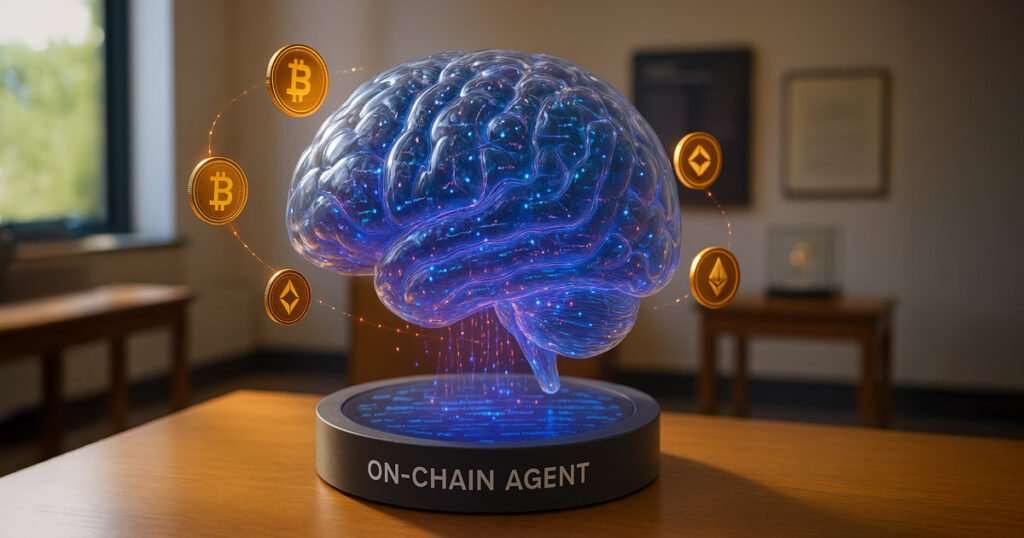The Future of AI in DeFi: Navigating Transparency and Privacy Challenges
Introduction to Autonomous AI Agents in Crypto
At EthDenver earlier this year, the discussions surrounding AI and autonomous AI agents sparked great interest. This excitement is not just a fleeting trend; it has persisted across various crypto conferences throughout the year. The implications of these technologies extend beyond conceptual discussions—they are actively managing real funds. However, a critical challenge looms: the transparency inherent in blockchain technology may serve as a double-edged sword. While transparency fosters trust, it can also expose vulnerabilities that these AI agents face in the competitive landscape of financial markets.
Understanding AI Agents in DeFi
AI agents are sophisticated software programs designed to operate autonomously, handling specific financial tasks within decentralized finance (DeFi). Leveraging machine learning and blockchain technology, these agents monitor market trends, recognize patterns, and execute trades automatically. Unlike traditional trading bots, modern AI agents possess adaptive capabilities, refining their strategies based on performance. This evolution marks a significant advancement in financial automation, promising enhanced efficiency and precision. Yet, this very edge is threatened by an intrinsic flaw: their decisions—essentially their "brains"—are made visible on public blockchains, which raises challenges in competitive settings.
The Transparency Dilemma
Currently, DeFi agents are integral to various functions such as trading across decentralized exchanges, managing lending operations, and optimizing yield farming. Their ability to react to market fluctuations in real-time is impressive; however, the transparency of blockchain transactions issues a warning. Every action taken by these agents leaves a trace that reveals their strategic elements akin to playing poker with one’s cards exposed. This becomes particularly troubling as the unique selling point of DeFi is its promise of eliminating reliance on centralized authorities. If agents’ strategies can be easily observed and replicated, meaningful innovation may be stymied, prompting concerns regarding the integrity of decentralized systems.
Market Manipulation and Strategy Vulnerability
The visibility of AI agents’ strategies also poses a risk for market manipulation. Malicious actors can exploit the transparency of these agents, engineering conditions that can mislead them and generate profits at the expense of others within the ecosystem. This problematic landscape highlights a fundamental flaw in applying AI intelligence to transparent systems, where strategy formulation and execution cannot be decoupled. Consequently, in a scenario where borrowers can access insights on improving their credit scores, the entire credibility of decentralized credit markets could be compromised. The transparency that ostensibly fosters trust may actually undermine unintentionally.
The Case for "Private Brains"
To address these vulnerabilities, a paradigm shift towards employing "private brains" for DeFi agents is essential. By maintaining the confidentiality of computation processes, agents can make informed decisions while shielding their strategies from public scrutiny. This secures a competitive advantage, preserves innovation, and mitigates risks associated with front-running and strategy replication. A private computation framework would withstand the appeal of transparency while maintaining the benefits of a trustless environment. Notably, this approach could foster a healthier market dynamics by reducing correlated behavior among agents that often leads to increased volatility and market crashes.
Implementing Technological Solutions
One effective method of achieving this balance is through Trusted Execution Environments (TEEs). TEEs create secure areas where computations can occur in isolation, ensuring that the results are verifiable while keeping the underlying details confidential. Implementing TEEs within AI-driven DeFi solutions could catalyze significant growth in algorithmic finance. Without privacy measures, the environment will incentivize exploitation, resulting in a fragile economic framework susceptible to crisis. Therefore, embracing private computation is not just advantageous but imperative for the future stability of decentralized finance.
Conclusion: A Crossroads for AI-Powered Finance
As we stand at a critical juncture regarding AI-driven financial systems, decisive action must be taken to establish frameworks that prioritize both transparency and privacy. The technology to implement secure, private computations exists today, and harnessing it will be vital for safeguarding the long-term integrity of the DeFi ecosystem. If we can harmonize the strengths of AI agents with essential privacy measures, we will not only create more efficient financial markets but also ensure their resiliency amid a landscape fraught with risks. The choices made now will shape the path of decentralized finance and its ability to meet the challenges of the future.


